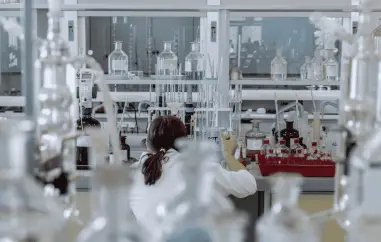Rising Incidence of Cancer in Individuals under 50
 A recent study conducted by an international team from Zhejiang University in China reveals a concerning trend: cancer diagnoses among younger individuals have seen a significant uptick in recent decades. Between 1990 and 2019, the global incidence of cancer in the 14- to 49-year-old age group surged by nearly 79 percent. Now, a team of researchers from the United States has unearthed a possible explanation for this worrisome phenomenon.
A recent study conducted by an international team from Zhejiang University in China reveals a concerning trend: cancer diagnoses among younger individuals have seen a significant uptick in recent decades. Between 1990 and 2019, the global incidence of cancer in the 14- to 49-year-old age group surged by nearly 79 percent. Now, a team of researchers from the United States has unearthed a possible explanation for this worrisome phenomenon.
Notably, not only has the incidence of cancer among younger demographics increased, but so too has the mortality rate. Deaths attributable to cancer in individuals aged 14 to 49 climbed by 27.7 percent over the same period. In 2019, breast, tracheal, bronchus, and lung cancer, as well as stomach and intestinal cancer, exhibited the highest mortality rates. Projections by the research team suggest a further rise in both cancer incidence and mortality among younger cohorts by 2030. The researchers attribute this surge to dietary factors, alcohol consumption, and tobacco use.
However, another potential culprit behind the surge in cancer diagnoses among younger individuals has emerged. A US-based research team has established a link between a person's biological age and their susceptibility to cancer. Given that age is a primary risk factor for various cancer types, it follows that biological age may also play a crucial role.
Presented at the annual conference of the American Association of Cancer Research, the study analyzed medical records from 148,724 individuals. Nine blood-based markers associated with biological age were scrutinized, enabling the calculation of each participant's biological age using a specialized algorithm. These markers included albumin, creatinine, glucose, C-reactive protein, lymphocyte proportion, mean cell volume, width of red blood cell distribution, alkaline phosphatase, and white blood cell count.
By comparing actual age with biological age, the researchers were able to identify instances of accelerated aging. The findings indicate that individuals born after 1965 are 17 percent more likely to experience accelerated aging compared to those born between 1950 and 1954.
Moreover, accelerated aging appears to heighten the risk of cancer, particularly lung, stomach, colon, and uterine cancers. For each standard deviation increase in accelerated aging, the risk of early-onset lung cancer surged by 42 percent, gastrointestinal cancer by 22 percent, and early uterine cancer by 36 percent.
While the study did not delve into the specific mechanisms underlying the heightened susceptibility to these cancer types, Ruiyi Tian, a contributor to the research, posits potential explanations. Tian suggests that organs such as the lungs, with limited regenerative capacity, may be more vulnerable to aging effects. Additionally, inflammation, which intensifies with age, may contribute to the heightened risk of stomach and intestinal cancers.
Although the study's limitations, including the lack of longitudinal tracking and the homogeneity of the study population, have drawn criticism, its findings hold significant implications for cancer prevention. Tian suggests that if corroborated, strategies aimed at slowing biological aging could offer a novel avenue for cancer prevention. Furthermore, tailored screenings for younger individuals exhibiting signs of accelerated aging could facilitate early cancer detection.
As the World Health Organization (WHO) anticipates a marked increase in cancer cases globally, with four primary contributors, cancer prevention and early detection initiatives become increasingly imperative. With one in five individuals expected to confront cancer during their lifetime, proactive measures informed by research findings like these are crucial in curbing the disease's impact.
Image by Michal Jarmoluk from Pixabay









































